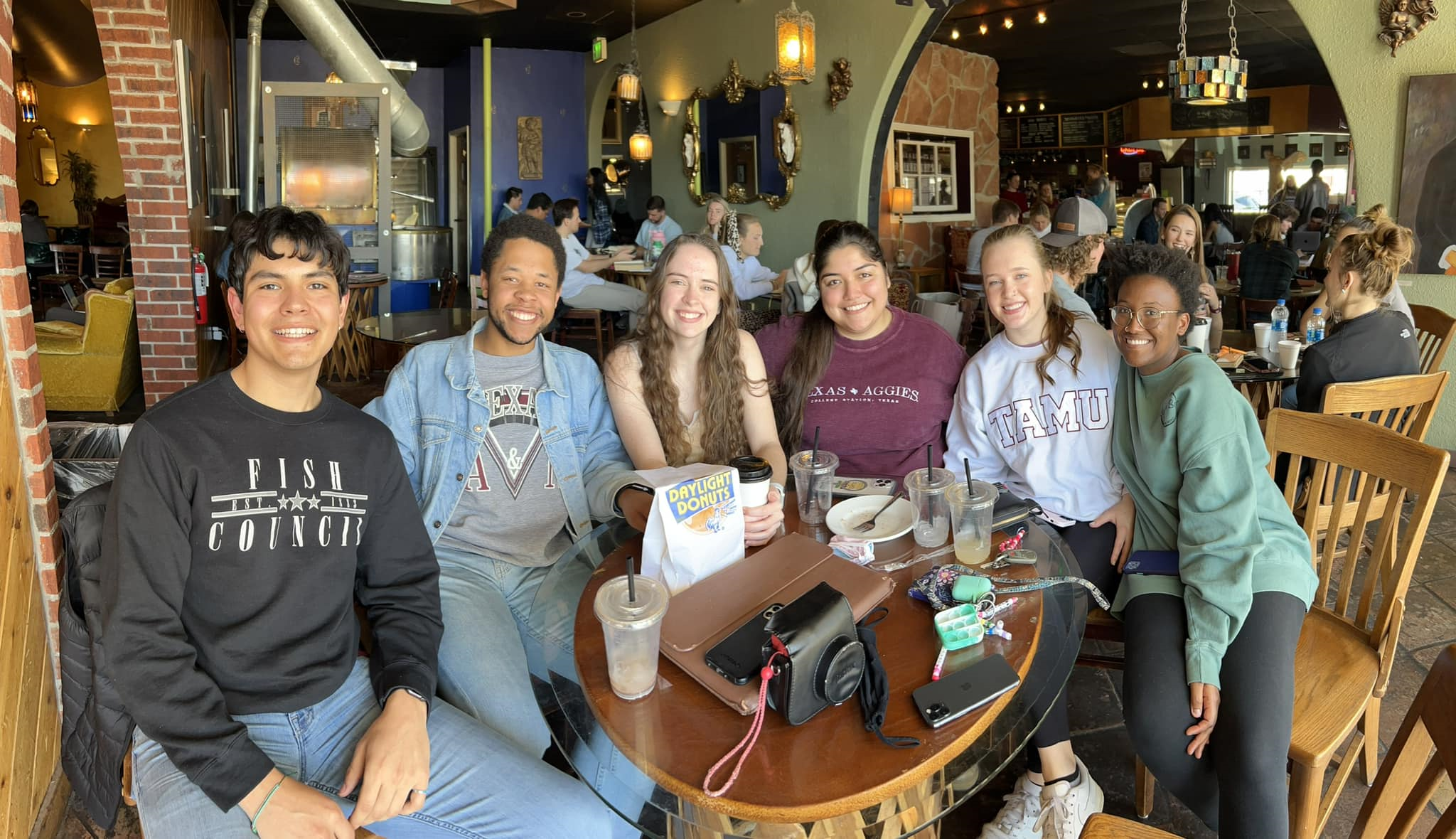“We wish to suggest a structure
for the salt of deoxyribose nucleic acid (DNA).”
James Watson | “Nature”, April 1953
Finance & Administration: Facilities


“We wish to suggest a structure
for the salt of deoxyribose nucleic acid (DNA).”
James Watson | “Nature”, April 1953
Finance & Administration: Facilities

The RELLIS Data and Research Center will be a public – private development with Texas A&M University. The data center will be built on the new RELLIS Campus located in College Station, Texas. It will offer cloud storage and outstanding managed services. The RELLIS Academy and Research Lab offers the ability for Texas A&M University to give real world data center experience to both students and faculty.
KANM Student Radio, founded in 1973 at Texas A&M University, began as Student Government Radio, broadcasting via cable on 107.5 FM in partnership with Mid-West Video Corporation. Initially airing from 4 p.m. to 2 a.m. weekdays, it offered diverse genres like hard rock and country. Despite early financial struggles, accumulating $5,783.64 in debt by 1977, KANM grew its influence through the 1970s and 1980s, facing technical issues like outages in 1978 and 1979.
It became independent in the 1980s, moving to the Pavilion complex in 1983 with equipment donations. KANM pioneered online streaming in 1998, transitioning to online-only by the mid-2010s. In 2024, it secured a low-power FM permit (KAGZ-LP 95.5 FM), marking a return to airwaves. Now located in the Memorial Student Center, KANM remains student-run, promoting non-commercial music and hosting events like the bi-annual “Save the Music” concert.
Howdy! I am so stoked to announce that we recently got to work with The Highway 6 Band, a sick group based out of College Station, to produce a KANM Library Session!!
Here’s a quick clip of the band performing their original song “Me or the Road” 🔊 pic.twitter.com/0lWpzZhFDU— KANM Student Radio (@KANMRadio) March 24, 2023
Facilities & Energy Services: Procedures & Standards

![]()
“Everything You Know About The Future is Wrong”
How surprisingly recent of an invention is your favourite way of brewing your morning coffee? pic.twitter.com/mnZYOPqs8L
— Simon Kuestenmacher (@simongerman600) January 27, 2024
Aristotle: On Sophistical Refutations Coming To Be Passing Away The Cosmos
Purdue University: Logical Fallacies and How to Spot Them
Plunder and Deceit: Big Government’s Exploitation of Young People and the Future (Mark Levin, 2015)
Grapevine-Colleyville Intermediate School District | 2024-2025 Operating Budget $172 million
Last night, we celebrated the graduation of the 2nd class of Leadership GCISD! This incredible group of community members got a behind the scenes look at what makes GCISD thrive, and finished their semester-long program learning more from Finance, Human Resources and Technology. pic.twitter.com/CuMt95cZBm
— Grapevine-Colleyville ISD (@GCISD) April 23, 2025
What a sweet way to celebrate learning! About 40 Silver Lake students were honored with medals and treated to Kona Ice for reading at least 2,100 minutes this school year as part of their campuswide reading challenge. Nice job! pic.twitter.com/kkg7sDt7y5
— Grapevine-Colleyville ISD (@GCISD) May 15, 2025
Opening and operating a small coffee shop in Texas requires adherence to various codes and standards to ensure safety, legality, and quality service. Students get a front row view of the competing requirements of safety and economy even before the cafe atmospheric and economic viability make their passion a going concern.
1. Business Licenses and Permits:
2. Health and Safety Regulations:
Featured Texas Coffee School Coffeepreneur®: @TheHiveJavaLounge #WomensHistoryMonth Zoraida Dobard was an educator with no prior experience in the coffee industry. She decided to follow her passion and create a space that resonated with her. pic.twitter.com/t5xBs1Assh
— Texas Coffee School (@TXCoffeeSchool) March 10, 2024
3. Building and Construction Codes:
4. Additional Considerations:
There’s enough “content” in the foregoing list of considerations to meet the requirement for an Associates Degree at any community college.
Starting and running a privately held coffee shop within a building located in the campus proper — think the franchise chains like Starbucks — is another layer of complexity in our session on Joint Use Agreements.
During Women’s History Month, we want to celebrate our female Coffeepreneurs®! Danika Young is the owner of Creative Bean Coffee, a family-oriented coffee shop in Rapid City, South Dakota. She opened her coffee business in June 2022, first from a mobile trailer for events. pic.twitter.com/6ckYJvSeqW
— Texas Coffee School (@TXCoffeeSchool) March 21, 2024
https://www.congress.gov/member/district/brandon-gill/G000603
I’m proud to stand with @Riley_Gaines_
Men don’t belong in Women’s sports pic.twitter.com/ABCSOUfnNj
— Danielle D’Souza Gill (@danielledsouzag) June 7, 2025
Late Night Breakfast is a tradition where students take a break from studying
for final examinations and served breakfast by the Faculty and Staff.
Southwestern University Consolidated Financial Statements June 2023 | $643.4M
Behind the Artifact: The Melville Compass
International Building Code Section 302 Group A-2 occupancy includes assembly uses intended for food and/or drink consumption
Related:
New update alert! The 2022 update to the Trademark Assignment Dataset is now available online. Find 1.29 million trademark assignments, involving 2.28 million unique trademark properties issued by the USPTO between March 1952 and January 2023: https://t.co/njrDAbSpwB pic.twitter.com/GkAXrHoQ9T
— USPTO (@uspto) July 13, 2023
Standards Michigan Group, LLC
2723 South State Street | Suite 150
Ann Arbor, MI 48104 USA
888-746-3670
